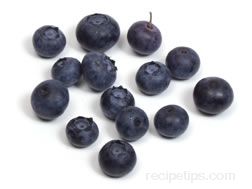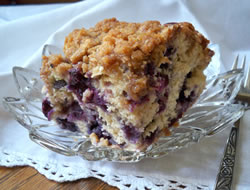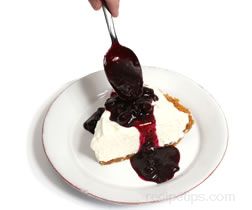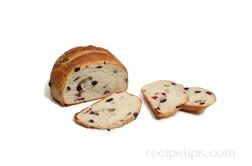Recent studies have supported theories that Blueberries, which are low in calories and high in antioxidants and fiber, are a healthy food alternative by offering protection against various types of cancer as well as heart ailments. As a comparison, a single cup of blueberries provides an amount of antioxidants equal to five servings of broccoli, peaches or grapes.
Avaiable fresh, frozen or dried, Blueberries can be purchased throughout the year in most food stores. When selecting, choose berries that are plump, chalky blue in color, and roll easily within containers. To store, keep fresh Blueberries unwashed and placed on the bottom shelves of the refrigerator. They should be consumed within a week. If berries are to be frozen, pick out discolored or mushy berries and wash thoroughly before freezing. Place the berries in a flat pan and freeze them as a single layer before allowing them to be stacked on top of others to avoid bruising or damage. After becoming frozen, remove the berries and place them in resealable freezer bags for future use. Another option for enhancing the flavor of frozen berries is to poach the Blueberries in a syrup flavored with lemon, allow them to cool, and then freeze the berries. When adding Blueberries to recipe that is best if the berries are distributed throughout rather than lumped or grouped together, consider adding flour to the berries before placing them into other ingredients. By rolling the berries in flour prior to folding them into a batter, the berries will have a coating that will assist with spacing them apart so the muffins, cakes or other baked goods have a better distribution of the fruit.


















